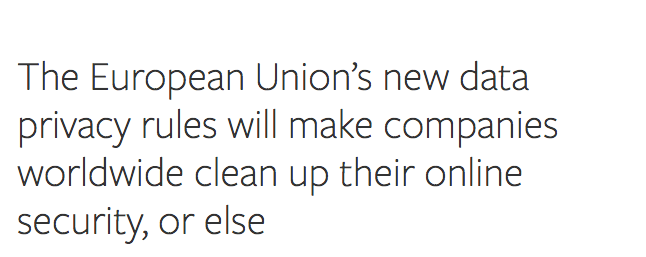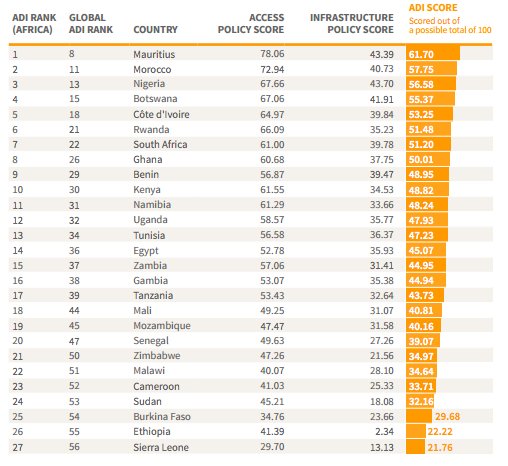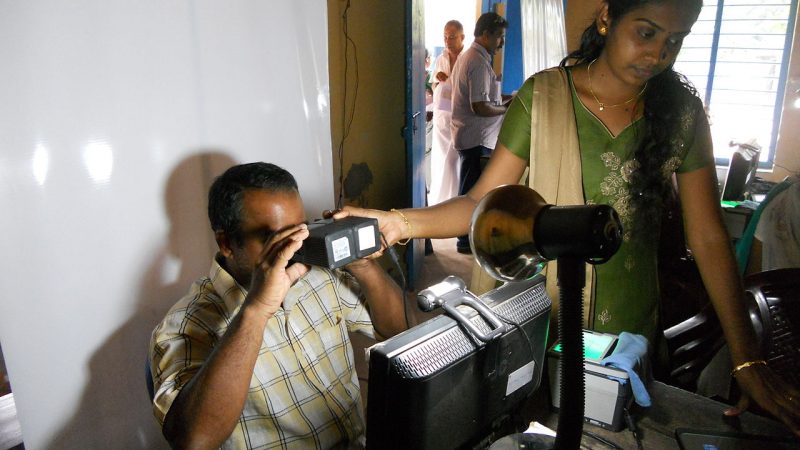European Parliament Condemns Mass Surveillance, Shames Complicity With NSA, And Demands Encryption, Net Neutrality, Free/Open Software In New Report
The European Parliament just adopted a report that goes way further in the right direction than anything seen before from any legislative body. It condemns mass surveillance in the strongest conceivable of legislative language, it shames the member states who have cooperated with the US NSA, and it names encryption as a prerequisite for human rights in the first place.
The adopted report (PDF) is so chock full of extremely positive statements, it’s hard to know where to begin. Let’s pick just a few of the key adopted points…
The European Parliament…
The European Parliament comes out in favor of strong encryption, and says in very strong words that no restrictions on encryption can be tolerated:
9. Urges the EU itself, and in particular the European External Action Service, to use encryption in its communications with human rights defenders, to avoid putting defenders at risk and to protect its own communications with outsiders from surveillance;
20. Urges the EU to counter the criminalisation of human rights defenders’ use of encryption, censorship-bypassing and privacy tools, by refusing to limit the use of encryption within the EU, and to challenge third-country governments that level such charges against human rights defenders;
21. Urges the EU to counter the criminalisation of the use of encryption, anti-censorship and privacy tools by refusing to limit the use of encryption within the EU, and by challenging third-country governments that criminalise such tools;
45. Condemns the weakening and undermining of encryption protocols and products, particularly by intelligence services seeking to intercept encrypted communications;
49. Calls explicitly for the promotion of tools enabling the anonymous and/or pseudonymous use of the internet, and challenges the one-sided view that such tools serve only to allow criminal activities, and not to empower human rights activists beyond and within the EU;
61. Calls for each individual to be entitled to encryption, and for the conditions needed to allow encryption to be created; takes the view that controls should be a matter for the end user, who will need the skills required to carry out such controls properly;
62. Calls for the introduction of ‘end to end’ encryption standards as a matter of course for all communication services, so as to make it more difficult for governments, intelligence agencies and surveillance bodies to read content;
The legislative body condemns mass surveillance, and shames member states who have been complicit in it (stops short of naming Britain, Sweden, Germany, and France):
3. Believes that the active complicity of certain EU Member States in the NSA’s mass surveillance of citizens and spying on political leaders, as revealed by Edward Snowden, has caused serious damage to the credibility of the EU’s human rights policy and has undermined global trust in the benefits of ICTs;
27. Considers mass surveillance that is not justified by a heightened risk of terrorist attacks and threats to be in violation of the principles of necessity and proportionality, and, therefore, a violation of human rights;
63. Emphasises the special responsibility of government intelligence services to build trust, and calls for an end to mass surveillance; considers that the monitoring of European citizens through domestic and foreign intelligence services must be addressed and stopped;
The EP demands net neutrality, as well as uncensored and unrestricted access to the Internet, which is a rather huge deal:
19. Calls for the inclusion of clauses in all agreements with third countries that refer explicitly to the need to promote, guarantee and respect digital freedoms, net neutrality, uncensored and unrestricted access to the internet, privacy rights and the protection of data;
Finally,
10. Calls on the EU to adopt free and open-source software, and to encourage other actors to do so, as such software provides for better security and for greater respect for human rights;
Not the first time the EP calls for free and open-source software, but it’s nice to see this clear justification, which is new.
Overall, this report goes further than any report I’ve seen before, and I’d like to see much more going in this direction.
Now, unfortunately, this report is not legislation. It’s sort of a request for legislation; it’s an indication to the European Commission, which writes the legislation, what the European Parliament will approve and what it won’t. But the European Parliament, along with the US Congress and most other parliaments on the planet, is kind of like a demented parrot on these issues. They repeat whatever statement they heard last that sounds good, with no regard to a possible complete conflict with the very previous statement, because of a fundamental lack of understanding of technical requirements to uphold human rights.
This means that when the copyright industry lobby comes next and says “BUT BUT ERR JERBS”, that statement will be repeated too, despite being in complete and utter conflict with most or all of the points in this report. A vast majority of the people in this legislative body and other legislative bodies do not see that what they just stated about requiring human rights is utterly incompatible with, say, maintaining and enforcing the copyright monopoly on the Internet.
For example, when somebody points out that “uncensored and unrestricted access to the Internet” categorically rules out any court-ordered censorship of The Pirate Bay, legislators are likely to be a medical case study in explaining how both can be fulfilled at the same time, which they obviously can’t. This will hopefully change with the next generation of legislators, the people of the net generation. In the meantime, we need to keep the mass surveillance enough at bay to still have a shred of liberty left when they take the reins.
In the meantime, privacy and other liberties remain your own responsibility.
Soucre: Private Internet Access



